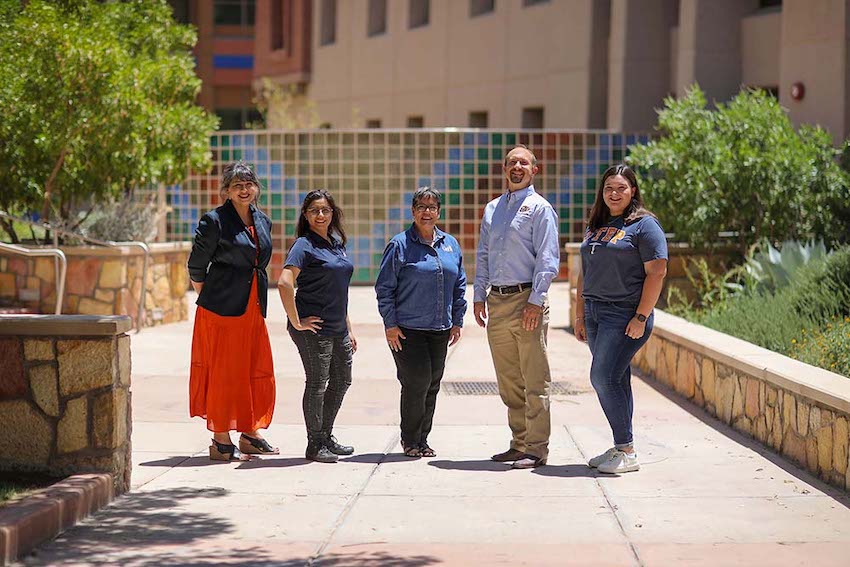
UTEP Professor Receives Grant to Provide Clean Water to Marginalized Texans
Last Updated on September 01, 2022 at 12:00 AM
Originally published September 01, 2022
By MC Staff
UTEP Marketing and Communications
Team led by Ivonne Santiago, Ph.D., to develop subscription service for filtration systems

EL PASO, Texas (Sept. 1, 2022) — Ivonne Santiago, Ph.D., associate professor in The University of Texas at El Paso College of Engineering, has received a grant supporting her ongoing work to provide thousands of households and dozens of schools throughout the state with access to reliable, clean water sources.
The grant of nearly $115,000 comes from Texas Water Trade, a nonprofit devoted to harnessing market knowledge and technological innovation to provide water for all Texans.
The grant is part of the nonprofit’s Clean Water for all Texans initiative, an effort that aims to end water poverty for the state’s most marginalized residents. For the past nine months, Santiago has worked with community organizations in Dallas, Houston, Harlingen and El Paso to compile information to develop a subscription service to deliver, install and maintain point-of-use filtration systems to vulnerable communities in Texas that do not have access to a safe drinking water source.
“We are developing systems that are cost-efficient and can provide clean water in areas with or without indoor plumbing, or with a contaminated water source,” Santiago said. “It is one of the ways we are building equity in safe drinking water access and improving the quality of life of the communities we serve. We are pleased to be partners of this initiative with Texas Water Trade with funding from Lyda Hill Philanthropies through their Lone Star Prize Competition.”
This is the latest in a line of funding opportunities that have helped Santiago lead efforts to provide safe water sources for areas of the world such as Haiti, Puerto Rico and Colombia that have been stricken by poverty, droughts, natural disasters and other issues. Santiago’s co-investigators include Shane Walker, Ph.D., professor of civil engineering and director of UTEP’s Center for Inland Desalination Systems; Alex Mayer, Ph.D., professor of civil engineering and director of UTEP’s Center for Environmental Resource Management; and Jeannie B. Concha, assistant professor of public health sciences.
Walker and Mayer said the project benefits from the University’s established expertise in finding remedies for water resources issues present in the arid Southwest.
“It is a privilege to work with an interdisciplinary team of researchers who really care about improving the lives of people in the Paso del Norte region and around the world,” Walker said.
“Safe and reliable water access is critical to human health and livelihoods, but even in the U.S., not everyone has basic water access in their homes,” Mayer said. “Solving the problem of water insecurity for vulnerable populations is not easy, but we think our proposed subscription-based drinking water treatment service could provide safe water at a price that’s affordable.”
Concha, whose research is aimed at understanding the intersection between sociocultural factors, psychological distress, and diabetes risk in underserved populations, is helping inform the development of water services and policies throughout the state in ways that are integrative and culturally informed.
“As a public health and behavioral scientist, we recognize the importance of not just creating technology but understanding how to engage people to use it,” Concha said. “This includes integrating cultural and social assets in promoting technology, in this case Dr. Santiago’s clean water systems.”
The quartet of researchers will continue to work on the project through September and hope to establish access to clean water sources in more areas throughout the state.
About The University of Texas at El Paso
The University of Texas at El Paso is America’s leading Hispanic-serving university. Located at the westernmost tip of Texas, where three states and two countries converge along the Rio Grande, 84% of our more than 24,000 students are Hispanic, and half are the first in their families to go to college. UTEP offers 169 bachelor’s, master’s and doctoral degree programs at the only open-access, top-tier research university in America.
